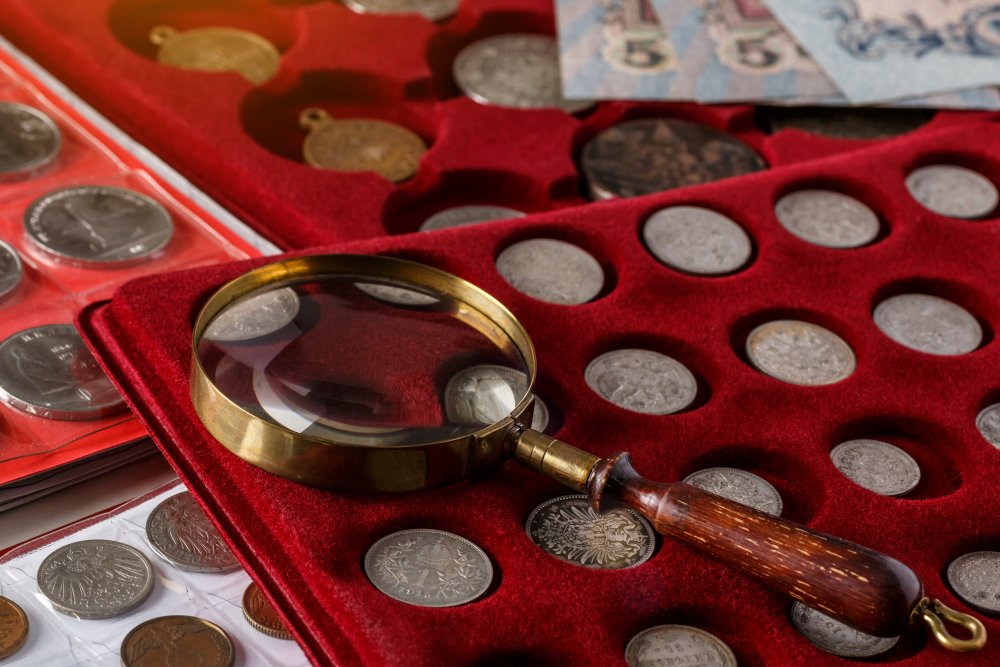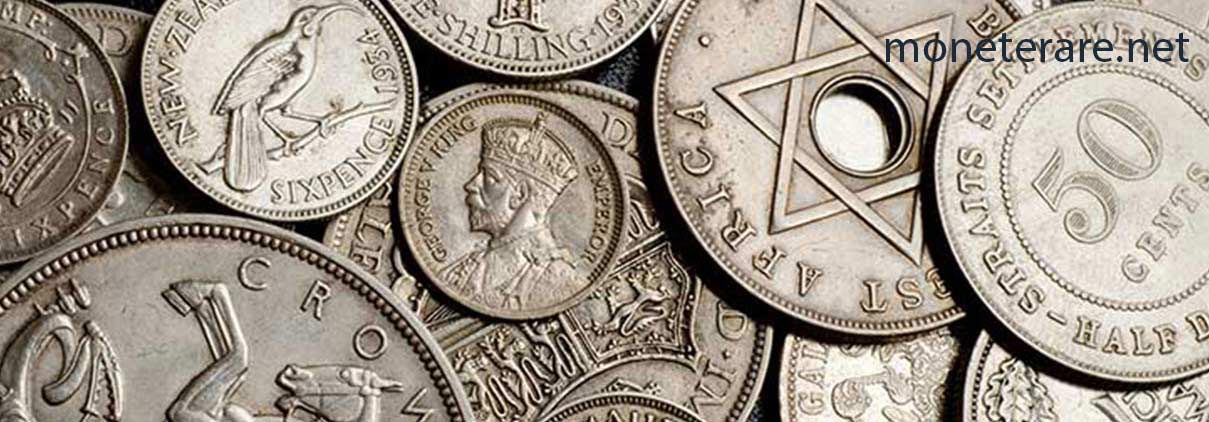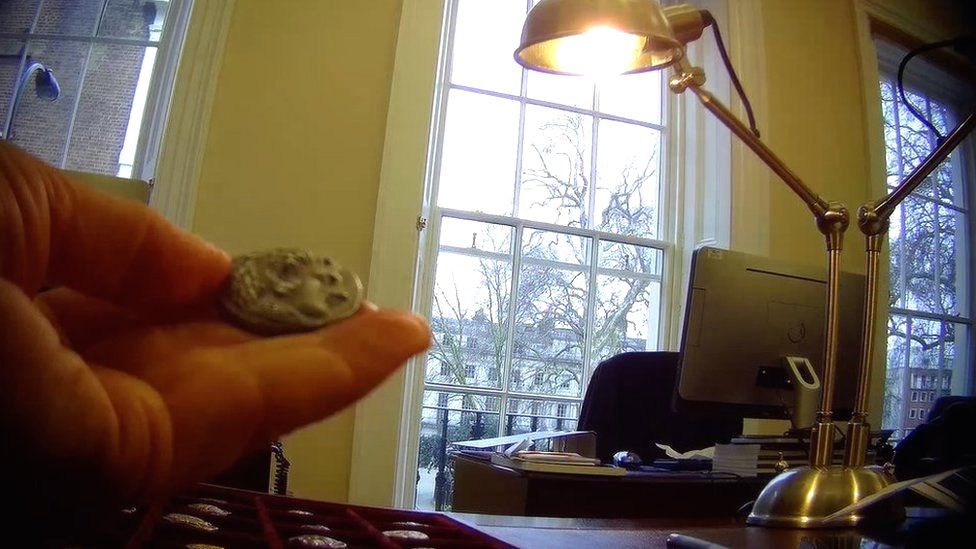Free Tips To Choosing Coin Expo And Coin
Wiki Article
What Information Can I Get About Local And Global Associations Of Numismatics Using A Database For Research?
Researching numismatics with regards to regional and global associations requires utilizing databases that store information about conferences, numismatic associations publications, as well as collaborative projects. Here's a systematic approach to conducting this type of research: Database selection: Choose databases that focus on numismatic organizations, such as websites of a major numismatic society like the American Numismatic Association(ANA) and the International Numismatic Council(INC) or a regional associations like the Numismatic Association of Australia. JSTOR is a repository for academic articles as well as conference proceedings and databases.
Define Research Focus: Specify your research objectives. Do you want to learn more about the background and activities of worldwide numismatic associations and regional collaborations, or publications, conferences or numismatic subjects discussed in these organizations? Make sure you know what your goal is to help aid your research.
Search Strategy: Keywords such as"numismatic organisations, "global Numismatics" or "regional numismatics" are helpful. It is also possible to include the names of associations and geographical regions, if you want. You can also use advanced search to filter your results by date, document types (such as association newsletters or conference papers) and geographic scope.
Data Collection: Access the information regarding the membership, history, activities, and publications for global and local numismatic association. Find out about current and upcoming workshops, conferences, and collaborative research projects. Access databases that include information about association leaders, members and contact details.
Analysis: Analyze data to better understand the influence of global and local societies of numismatics. Analyze the ways in which these associations help the advancement and dissemination of research on numismatics International collaborations, publications and international collaborations.
Cross-References: Verify information with various sources or databases. Check out the initiatives and activities of different associations to get an overview of the local and global developments in the field of numismatics.
Documentation: Be sure to note your findings in a systematic manner, including the sources and methods you used. Note down the database names, search terms, and relevance of each resource to the research questions.
Stay informed. Numismatics changes over time. There are new publications, collaborations, and conferences. To stay up to date on the latest developments in the field of numismatics in both regions, be sure to keep an eye on the association's websites as well as databases.
These steps will enable you to use databases effectively to study numismatics as it pertains to global and regional organizations. This allows for an in-depth investigation of the structure of organizations and the research efforts and the collaborative efforts that have shaped the numismatics business on a regional and global scale. View the top zlatemince.cz czech precious metals for site recommendations including banknote authenticity, rupee, legal tender, real, numismatics, coin artist, coin forum, banknote album, banknote show, banknote magazine and more.

How Can I Search For Artists On The Numismatics Database?
Here's how to conduct research: A structured approach is provided to assist you in conducting this kind of research. They include online catalogs from national mints like the United States Mint (or Royal Mint) as well as search platforms for numismatics research, museum collections, publications online catalogues, and publications.
Define Research Focus: Specify your research objectives. Do you wish to learn more about the work of particular coin artists Are you curious about the development of coin design throughout time, the evolution of artistic techniques of coin engraving or in the cultural and historic influences on numismatics art? Clarify your focus in order to direct your search.
Search Strategy - Make use of keywords, like "coin designers,"" numismatics artists" or "coin embroiders", and if appropriate, include names of specific artists or historical periods. The results of a search can be filtered according to artist specialties such as portrait engravings, thematic designs, or geographical regions.
Data Collection: Access to information about coin artists, including biographies, portfolios and notable works. Find information about particular coins created or made by these artists including images, descriptions, as well as historical contexts.
Analyze your data to uncover influence of art on coin artists. Examine how coin designs represent historical concepts and images. Compare the innovative methods and styles of artists from different periods or regions.
Cross-Reference Information: Confirm what you've discovered by comparing the information you have found from various collections, databases, and publications about numismatics as well as historical archives. This ensures the accuracy and completeness of your study. You'll gain insight into the diverse contributions of artists to the field of numismatics.
Documentation - Document your research findings by citing sources and describing the research methods you employed. Note the database's names or search terms, as well as the relevance of each source in relation to your study.
Stay up-to-date the latest developments in numismatics, artists' contributions continue to change. For the most recent discoveries and interpretations, keep up with updates from numismatic associations, museum exhibitions, or publications from scholarly journals.
By following these steps, you will be able to allow you to gain a thorough understanding of the numismatics of artists. This method allows for a thorough study of the techniques used by artists as well as the influence of culture and historical contexts that shape numismatic artwork. It offers valuable insights into the interplay of art and production of coins in history. Take a look at the best next page on banknote appraisal for site advice including coin storage, collection, banknote dealer, currency authentication, dinar, gold coins, coin series, banknote appraisal, rare coins, yen and more.

How Can I Research Numismatics For Historians And Researchers With The Database?
Here's a systematic approach to conducting research in this manner: Database Selection: Choose databases that are specialized in the field of numismatic research, historical archives and academic journals, and also institutional repositories. Here's a structured approach to conduct such research:Database Selection: Select databases that focus on numismatic research and historical archives, academic journals and institutional repositories. JSTOR is a good instance, but there's also Google Scholar, numismatic publications (like American Numismatic Society journals) and university database.
Define Research Focus: Specify your research objectives. Are you curious about the historical context of objects in the numismatic field and the research methods utilized by historians in the numismatic field, certain numismatic issues explored by scholars, or the contributions that researchers make to the numismatic world? Clarify your focus to guide your search.
Search Method: Search using keywords such as “numismatics,the study of numismatics "numismatics research," and "historical coins," which include specific historical geographical regions or periods. If possible, include themes or themes related to numismatics or themes related to particular historical time periods. Utilize advanced search options to filter results based on date, type of document (such as dissertations, articles and conference papers) as well as author affiliations.
Data Collection: Access details on scholarly research papers, articles and historical archives related to Numismatics. Gather details such as the title of publication, author names abstracts, methodology used, and historical contexts explored. Look for databases that allow you to access digitized research collections or numismatic ones.
Analyze your data to determine the theories and methods used by researchers, historians and other experts in numismatics. Evaluate how numismatic artifacts help to inform larger narratives of history as well as economic analyses, cultural studies or even political histories. Examine the results and methods of researchers on different subjects in numismatics.
Cross-Referencing Verify results by cross-referencing data from several databases and academic papers. This allows you to verify the accuracy and completeness of your numismatic research.
Documentation: Record your findings systematically, citing sources and highlighting the methods used. Notate the database names, search terms and the relevance of each resource to the research inquiry.
Keep up to date: Numismatic research and publications continue to develop. Stay up-to-date by checking updates from numismatic journals and academic society websites.
You can use databases to research numismatics as it pertains to historians or researchers by following these easy steps. This method lets you study the methodology, historical interpretations, and research-based inputs that contribute to the understanding of numismatics relation to broader cultural and historical contexts. See the most popular https://zlatemince.cz/ for blog info including coin dealer, banknote storage, zloty, nickel, obsolete currency, peso, zloty, currency history, engraving, banknote show and more.

What Can I Do With The Numismatics Database With Respect To Historical Archives To Do Research?
Here's a structured approach to conducting this type of research: Database Selection: Choose databases that focus on historical archives, numismatic collections, museum catalogs, and digitized historical documents. This is a structured method for conducting such research. Examples include national archives websites, museum archives, specialized numismatic research platforms, and library catalogs.
Define Research Focus: Specify your research objectives. You might be interested in knowing more about the history of collections, numismatics or coins, or historical transactions. Make sure you know what you are looking for to guide your search.
Use keywords to search for coins, numismatic documents, historical collections, and archival records related to coinage. If appropriate, you can include historical periods of time geographical regions, or topics in numismatics. Use advanced search options to narrow results down by document type (manuscripts and correspondence) or archival repository or date.
Data Collection: Get access to information related to numismatics in historical and archival documents that have been digitalized. Collect information from catalogs for auctions, photographs of coins from the past and archives of museum acquisitions.
Examine data to gain a better understanding of the historical context, narratives, and artifacts of numismatics. Analyze the ways in which the coins were traded, and utilized for commerce. Also, evaluate their role in political and cultural exchanges.
Cross-Referencing - Verify the accuracy of your research by comparing information from various databases such as archives, museum catalogues, and publications from the past. This will ensure the accuracy and completeness of your research. It also provides an extensive overview of the history of numismatics, as documented in historical archives.
Documentation. Record your research findings, citing the sources you used and describing the methods that were employed. Note the database's names as well as the search terms and relevancy of each source to your research.
Keep up-to-date Historical archives as well as numismatic findings are constantly being documented and analysed. Keep up to date by keeping track of updates from archives, museum collections and scholarly publications.
Use these guidelines to utilize databases effectively to explore the world of numismatics and archives from the past. This approach enables a deep dive into the historical contexts, cultural influences and societal impacts of numismatic objects, providing important insights into the development of the coinage system and its importance throughout time. View the top rated currency catalog tips for site tips including silver coins, banknote magazine, coin value, coin forum, coin forum, coin value, coin artist, rare coins, coin release, antique banknotes and more.

How Can I Learn More Information About Industry Consultants Using A Numismatics Database?
For numismatics research, it is important to make use of databases that have information on industry reports, individual consultants as well as numismatic societies. Here's a structured approach to conduct research on this subject: Database Selection: Select databases that specialize in consulting firms, industry reports, and publications relevant to numismatics. Examples include business directories, consulting company websites, publications of numismatic societies and databases that are specific to industry.
Define Research Focus: Specify your research objectives. You may be interested in consulting services for numismatic business, in market analysis reports regarding numismatics, or in the expert knowledge of consultants in specific areas of numismatics. Clarify your search to aid you.
Search strategy: Use keywords, like "numismatic companies", "numismatic firms" as well as "market reports on coins." If relevant, also include the areas of expertise or geographic regions. Utilize advanced search options to filter results by dates, consultants' specialties, and consulting services offered.
Data Collection: Access information on consulting firms specializing in numismatics and industry consultants offering services to businesses dealing in numismatics. Data Collection: Access information about consulting firms with their expertise areas (market analysis, collection management and authentication), testimonials from clients and the reports written by industry experts.
Examine the data to assess the function and contributions of consultants within the numismatic market. Evaluation: Assess the strategies and knowledge of consultants in advising clients on the numismatic investment, market trends collecting strategies, as well as regulatory issues.
Cross-Reference: Check the validity of your study by cross-referencing data from multiple directories, databases of consulting firms, publications and reports released by numismatic societies, as well as reports on industry. This approach ensures completeness and accuracy in your research.
Documentation. Note your findings from research by citing sources, noting the methods used. Keep track of the details like databases you've used and the search terms you used and the relevance of these to your research questions.
Keep informed: As economic conditions change and regulations requirements change and regulations are updated, so too do the market and consulting services in numismatics. Keep up to date by keeping an eye on updates to consulting firms' websites as well as industry publications and numismatic societies' publications. They'll provide latest perspectives and insights from industry consultants.
These steps will allow you to explore numismatics through the eyes of experts in the industry. This approach allows for an extensive analysis of the information on market analysis, strategic insight and business processes offered by industry experts. Follow the recommended zlatemince.cz czech precious metals for website info including banknote artist, banknote display, coin holder, currency dealer, banknote show, coin mintmark, currency appraisal, copyright detection, uncirculated, design and more.
